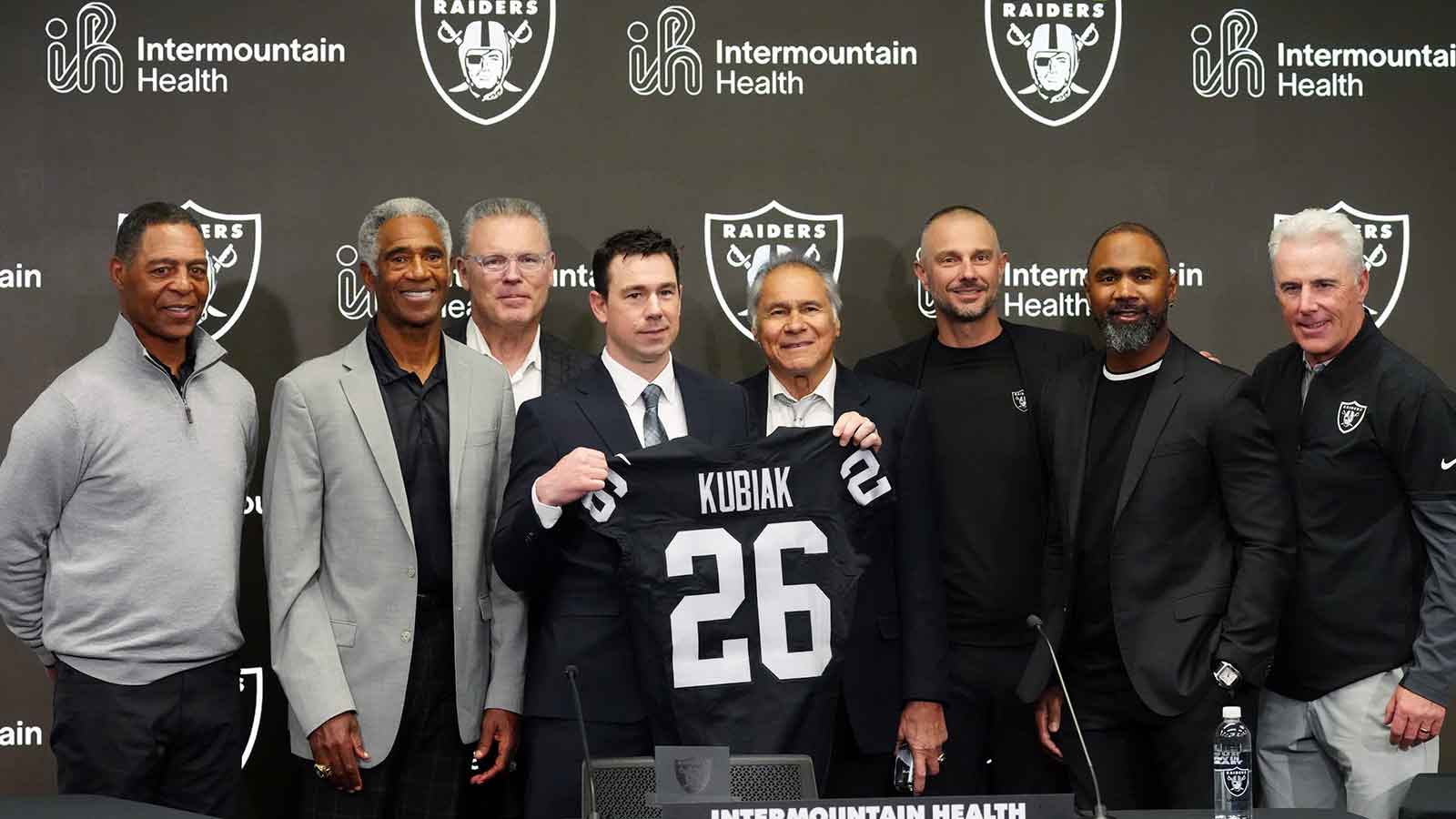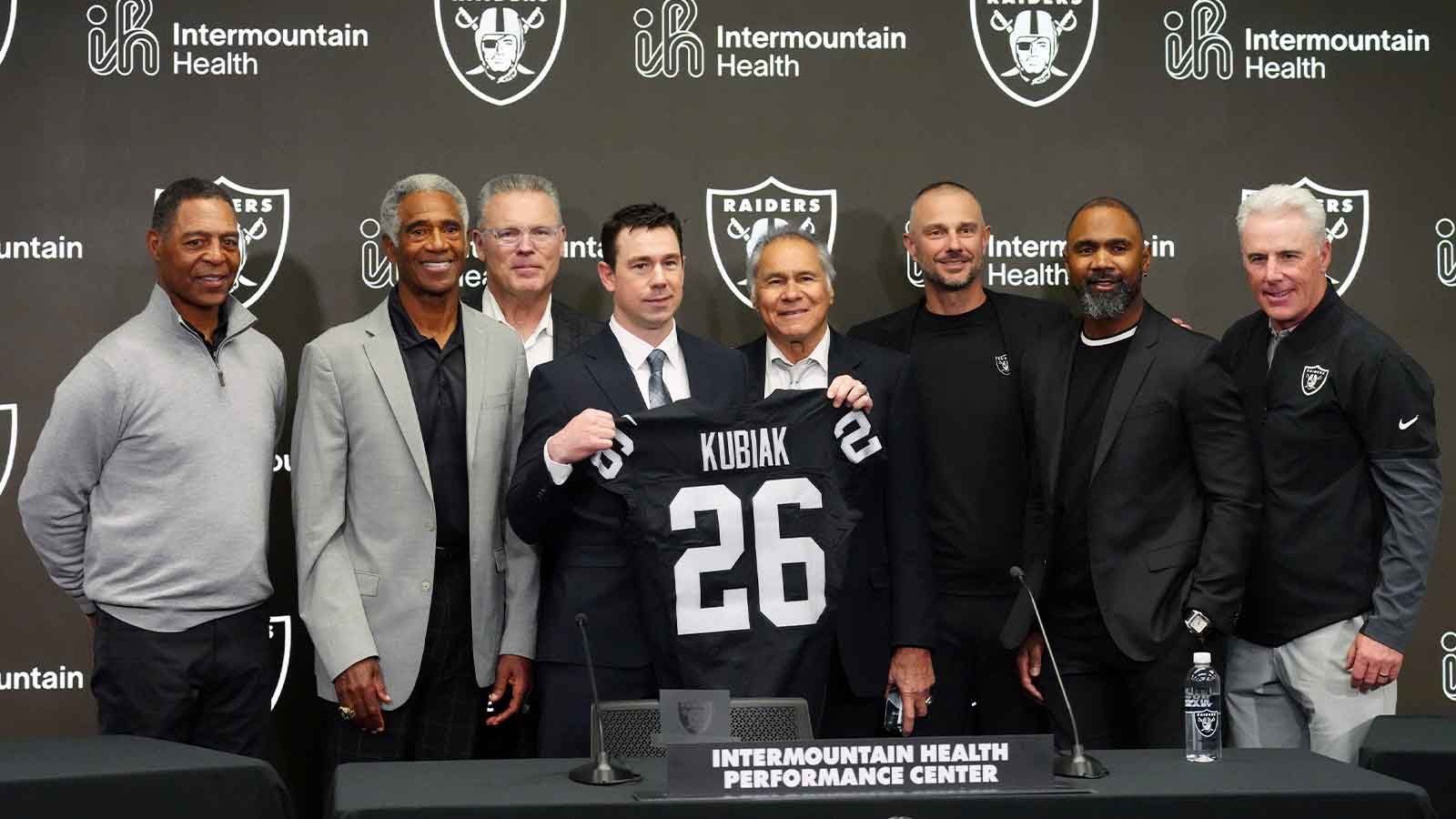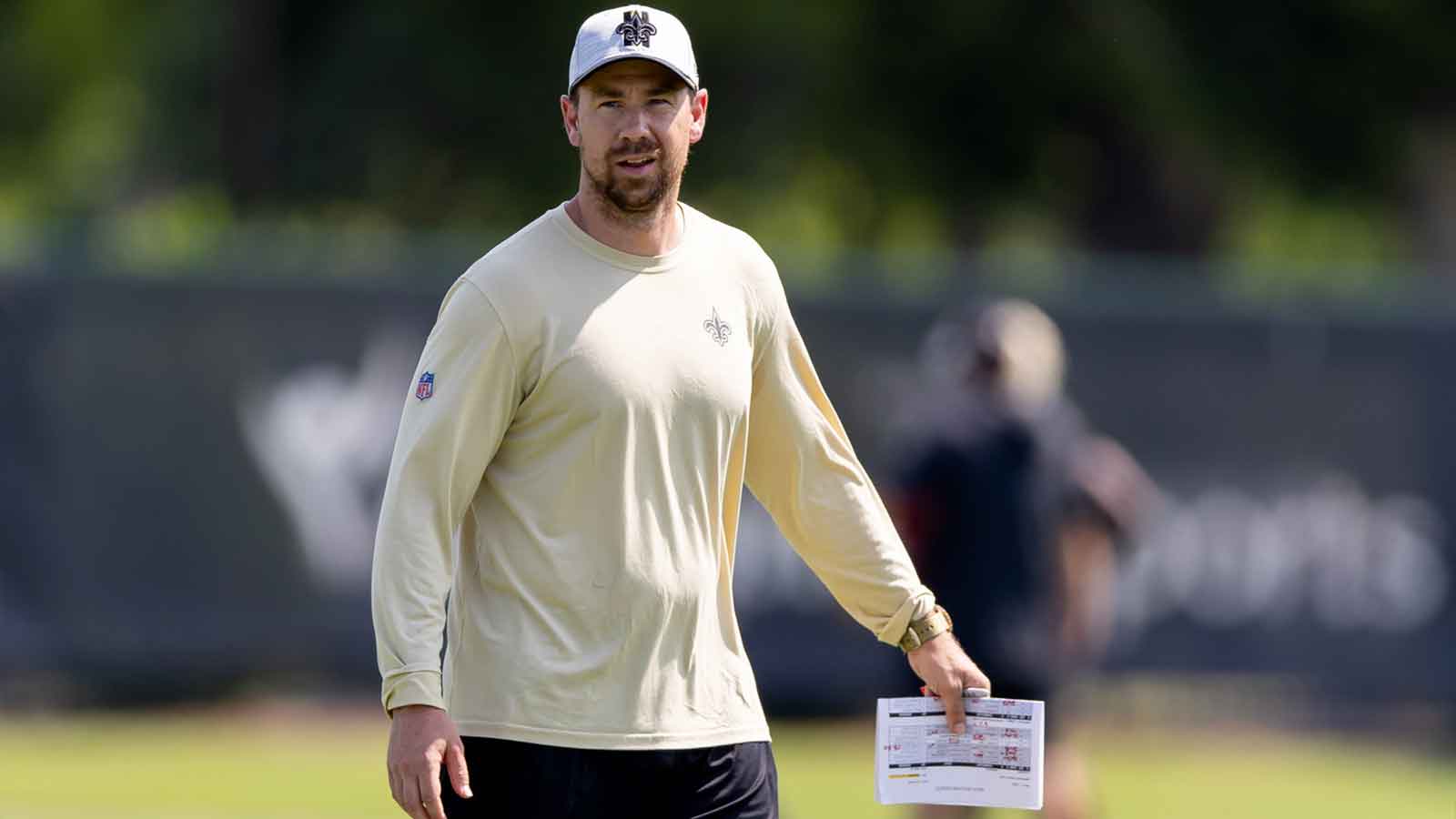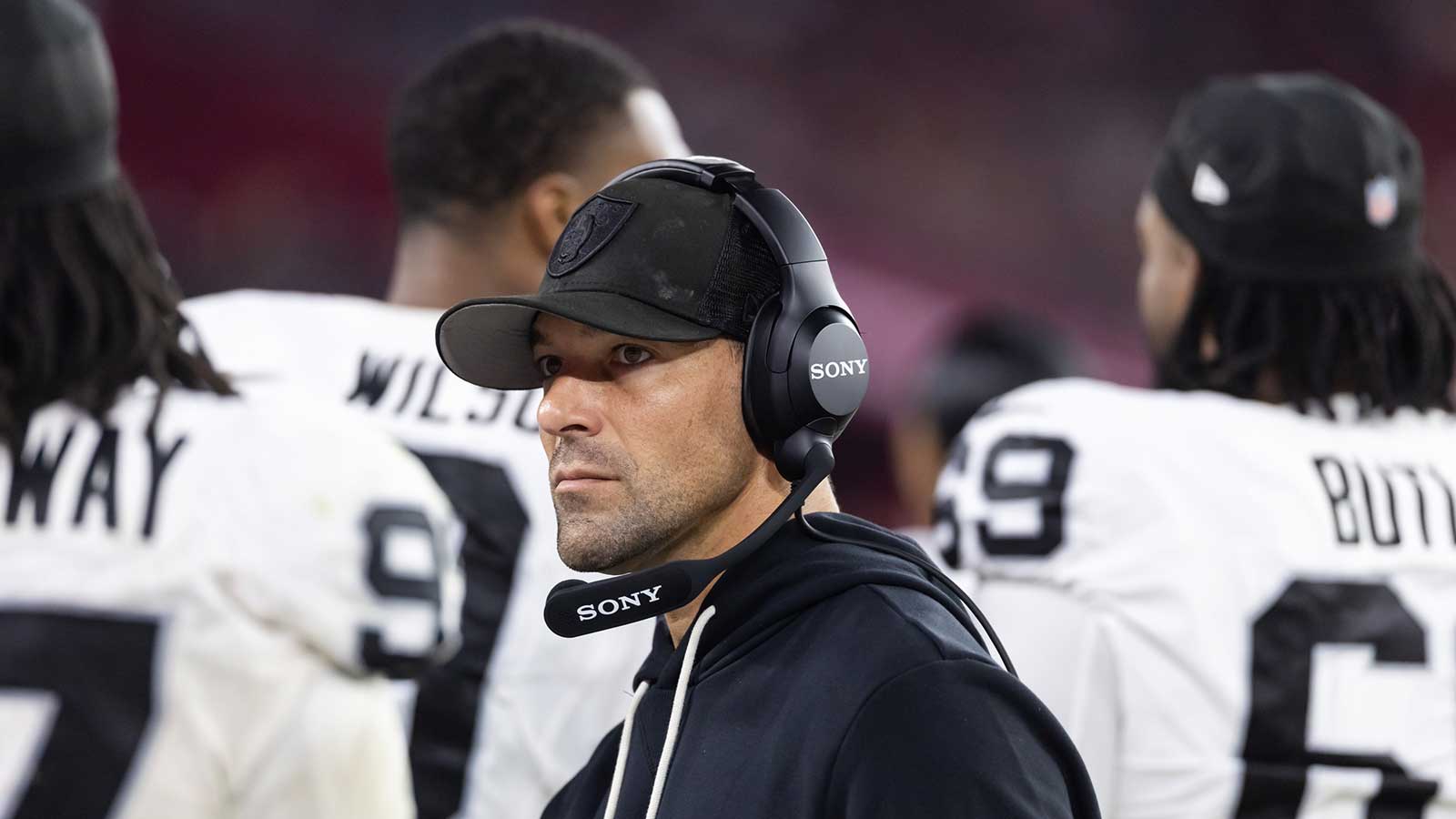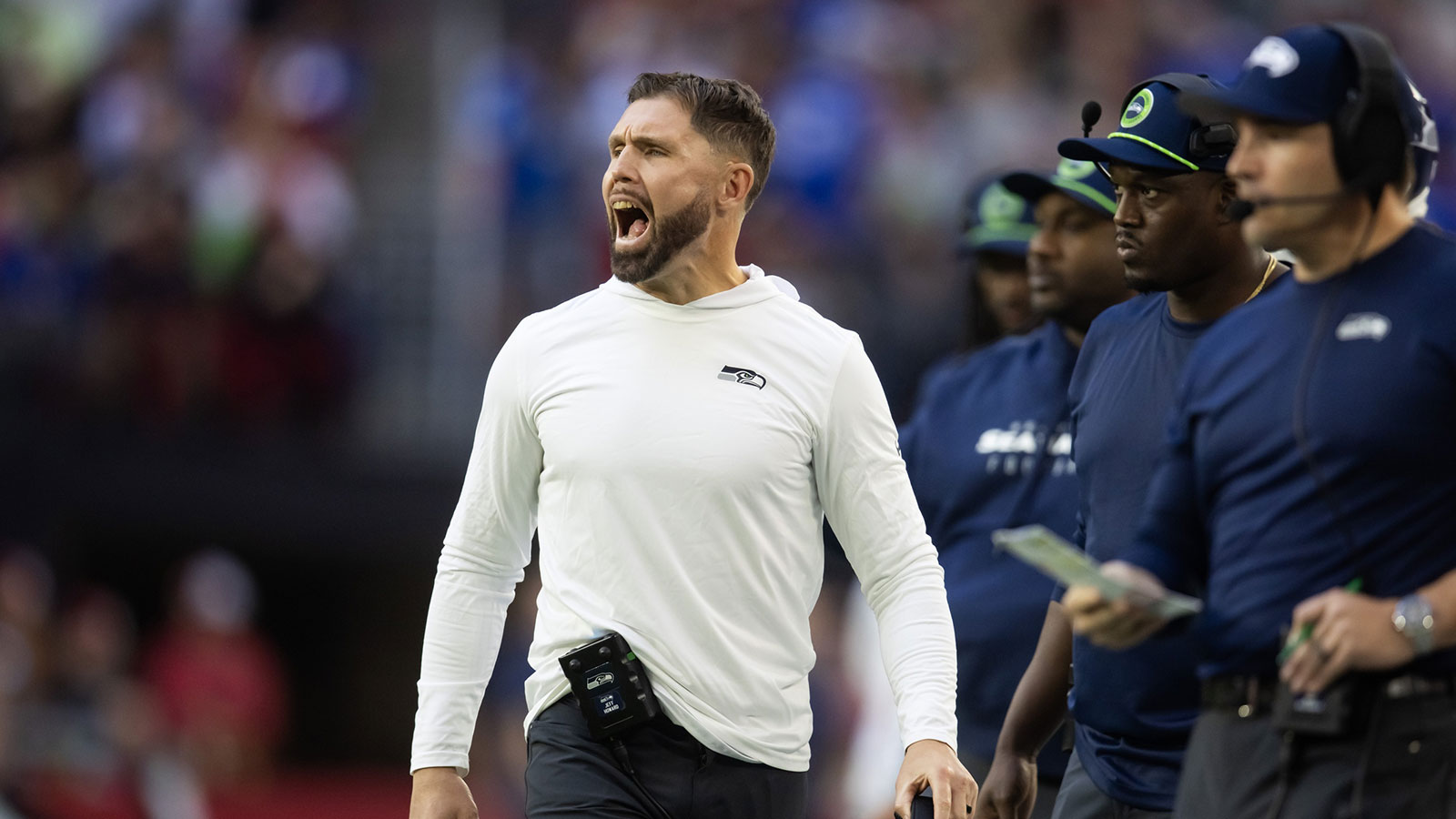As the Las Vegas Raiders approach a critical juncture in free agency, the spotlight falls on star running back Josh Jacobs. With the franchise tag deadline looming, the Raiders have outlined their strategy regarding Jacobs. According to reports, they have opted against utilizing the franchise tag. This would have entailed a payment of $14,149,200 for the running back. Interestingly, however, the Raiders still aim to secure Jacobs's services for 2024. Here, we explore the rationale behind the Raiders' decision and its potential implications for their future success. From evaluating their performance in the 2023 season to dissecting the ramifications of forgoing the franchise tag for Jacobs, this examination seeks to present a compelling argument in favor of the Raiders' strategic approach.
The Raiders' 2023 Season
Commencing with a challenging start, the Raiders' season underwent a transformative journey. It culminated in a resurgence under interim head coach Antonio Pierce following the dismissal of Josh McDaniels. Despite a 3-5 start, the team rallied under Pierce's leadership. They closed out the season with a 5-4 record. He also earned the respect of key figures within the locker room. Pierce's promotion to full-time head coach, alongside the appointment of Tom Telesco to oversee roster construction, signals a new direction for the team. Sure, the efficacy of this strategy remains to be seen. Still, the initial indications are promising. Of course, securing a new quarterback to align with the revamped regime also emerges as a primary objective for the Raiders.

The Raiders' Offseason Outlook
Navigating through a transitional phase, the Raiders' offseason blueprint presents several uncertainties. However, retaining Josh Jacobs for another year emerges as a priority to bolster the team's offensive prowess in 2024. Additionally, addressing the impending free agency of key offensive linemen becomes imperative to facilitate a smooth offensive transition.
With Jimmy Garoppolo's departure imminent and a potential quarterback competition brewing between Aidan O’Connell and incoming additions, the Raiders face decisions regarding defensive reinforcements. Enhancing the defensive line and cornerback positions stands out as a priority. This should support defensive coordinator Patrick Graham's stellar performance in the latter part of the previous season.
Financially, the Raiders are positioned favorably. They enter the 2024 offseason with a projected $47.9 million in cap space, as reported by Spotrac. With Garoppolo's departure and the possibility of utilizing cap-saving measures, the Raiders have the flexibility to address roster needs while maintaining financial prudence.
As things stand, the Raiders' decision not to franchise tag Josh Jacobs aligns with their broader strategic objectives and financial considerations. As they embark on a new era under a revamped leadership structure, the path forward for the Raiders appears poised for calculated growth and sustained success.
Here we will look at why the Las Vegas Raiders made the right call to not franchise tag Josh Jacobs.
An Intriguing Decision
Having already utilized the franchise tag on Jacobs for the 2023 season, the Raiders are now in negotiations for a long-term agreement with the running back. However, as time dwindles, Las Vegas faces mounting challenges in retaining Jacobs. Take note that he has been a cornerstone of the team throughout his NFL tenure. He has appeared in 73 games and amassed impressive numbers. These include 5,545 rushing yards and 46 touchdowns.
As the Raiders transition into a new era under Pierce, significant changes loom for the team's offensive dynamics. Despite Jacobs offering a formidable rushing threat, contractual negotiations have reached an uncertain phase. They want to re-sign him after not giving him the franchise tag. That's a bit of a risk, but we'll see how it plays out. Objectively speaking, however, with the prospect of another season under the franchise tag off the table, the Raiders must prepare for the possibility of life without Jacobs.
Strategic Insights
The decision to forego the franchise tag for Jacobs underscores the Raiders' strategic vision and forward-thinking approach. By refraining from this option, Las Vegas gains vital cap space that can be redirected toward addressing other key areas of concern. In particular, they can enhance the defense and fortify the offensive line. Moreover, Jacobs' injury history and performance fluctuations render a long-term commitment through the franchise tag quite precarious.
Furthermore, the abundant talent pool of running backs available in free agency and the draft presents the Raiders with alternative avenues to reinforce their backfield. Opting to let Jacobs explore free agency allows the team to negotiate a mutually beneficial contract aligned with their broader roster-building strategy.
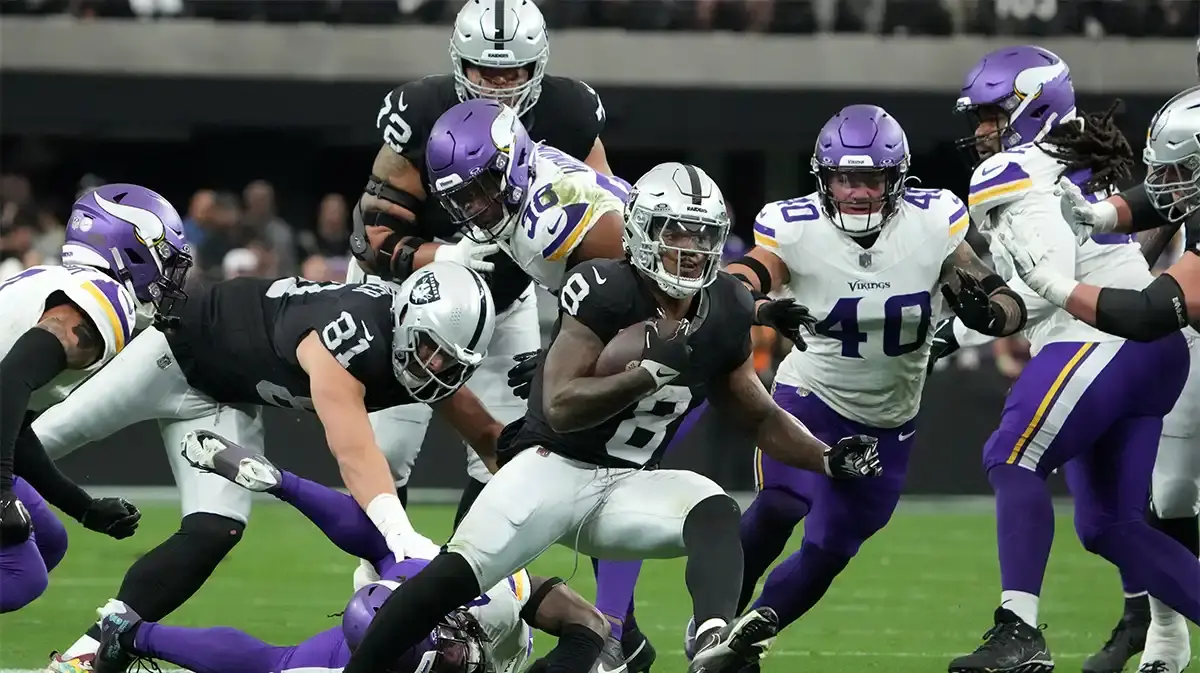
Outlook for 2024
At 26 years old, Jacobs has been a linchpin of the Raiders' offense since being drafted. As we said, he has showcased his prowess with nearly 7,000 scrimmage yards and 46 touchdowns over five seasons. The Raiders seek a long-term deal at a more manageable figure for Jacobs. That's brought about by contractual disagreements last offseason
Jacobs finds himself among a cohort of top-tier running backs entering free agency. These include Saquon Barkley, Austin Ekeler, Derrick Henry, and Tony Pollard. Of course, the landscape of the running back position is undergoing a significant shift in 2024. As such, the decisions made by teams like the Raiders will shape the trajectory of the position moving forward.
Looking Ahead
The Raiders' strategic maneuver to abstain from franchising Josh Jacobs emerges as a calculated step toward long-term stability and roster flexibility. As they navigate through negotiating terms with their star running back, the franchise stands at a pivotal juncture in shaping its future trajectory. With a new coaching regime in place and a host of key decisions looming, the Raiders must strike a delicate balance between retaining core talent and capitalizing on available resources. As the NFL landscape evolves, the ripple effects of the Raiders' decisions regarding Jacobs reverberate not only within the organization but across the league. How this shapes up will signify the dawn of a new era for the Silver and Black.









